
Conférencier•es invité•esSession plénière
Paysages acoustiques sous-marins – Impact humains, Économie Bleue et développement durable dans un monde en plein changement
Rewriting intertidal ecosystems in the Anthropocene Dr. Werner Krauß est un anthropologue social de l'Université de Bremen, au Centre de recherche en durabilité. Sa principale expertise réside dans l'écologie politique, avec un accent particulier sur les relations entre l'homme et l'environnement, le changement climatique et les paysages côtiers. Ses recherches actuelles portent sur les services climatiques, le réensauvagement des écosystèmes marins et la signification d'être humain dans l'Anthropocène. Conférenciers et conférencières :
Gaelle Dieulefet est maîtresse de conférences HDR en archéologie moderne et contemporaine, à Nantes Université, UMR CNRS 6566 CReAAH. Elle est scaphandrier professionnel (classe IIB). Ses recherches sont spécialisées en archéologie littorale et maritime: paysage culturel maritime, échanges maritimes transatlantique, économie portuaire et culture matérielle des équipages.
Bénédicte Meillon est Professeure en English Studies à l'Université d'Angers. She runs the Perpignan Ecopoetics and Ecocriticism research workshop. She has written papers on the ecopoetics of Barbara Kingsolver, Annie Proulx, Linda Hogan, Ron Rash, Strarhawk, and Ann Pancake. Some of her other work has led her to publish papers on Paul Auster, Russel Banks, and Roald Dahl. Her research specifically explores ecopoetics of reenchantment, focusing on magical realism, mythopoeia, neoregionalism, and ecofeminism, with close attention to the intra-actions between human and nonhuman naturecultures and the texture of language itself. She is invloved in Sea More Blue program.
Pierre Pretou est Professeur d'histoire médiévale et chercheur au LIENSS, Université de la Rochelle. Ses travaux investissent l’histoire de la justice à la fin du Moyen Âge, plus particulièrement la justice criminelle et les conflits, dans les régions atlantiques, les rivages et les activités maritimes. Cette recherche croise donc l’histoire de la justice et l’histoire maritime. Outre cet axe de recherche, il a développé et accentué ces quatre dernières années ses travaux en histoire de l’imagerie dans une démarche d’anthropologie historique appliquée, là encore, au croisement de l’histoire maritime et de l’histoire de la justice qui fondent ses travaux. En particulier,il a investi les savoirs populaires pour observer les poids des systèmes de représentation sur des questions littorales, pénales et maritimes.
Vincent Andreu-Boussut est maître de conférences en géographie à Le Mans Université et à l’UMR Espaces et Sociétés (ESO 6590 CNRS). Ses travaux de recherche concernent les patrimonialisations des espaces naturels littoraux en Europe et les transformations des pratiques de conservation de la nature en contexte de changement climatique. Il coordonne notamment les masters à distance Politiques territoriales de développement durable et Gestion des patrimoines naturel, culturel et immatériel et tourisme durable. Links: https://eso.cnrs.fr/fr/node/type-annuaire/7444/3/vincent-andreu-boussut
Vona Méléder is professor in Marine Biology at Nantes Université. Her main interest is to estimate the contribution of tidal flats to the Carbon Budget using remote sensing. Her expertise is the understanding of tidal flats vegetation and algae optical properties, in relation to their biology and ecophysiology. She mainly focuses on the micro-algae communities inhabiting intertidal sediments, i.e. microphytobenthos. She is currently the PI of the Horizon-Europe project Rewrite (2023-2028) for “Rewilding and restoration of intertidal sediment ecosystems for Carbon sequestration, climate adaptation and biodiversity support.” Rewrite ambition is to expand innovative approaches and nature-based solutions for rewilding seascapes constituted by intertidal soft sediment, bridging biodiversity conservation, climate adaptation and social expectations. This ambition is served by an impressively interdisciplinary consortium (25 partners from the academic and private sectors, representing 8 European tidal coastal states, as well as the UK, Canada and the USA) with recognized expertise on the climate-biodiversity nexus, fostering synergies among disciplines such as Social Sciences and Humanities, natural sciences and resources, and ecosystems management. Links: https://linktr.ee/VonaMeleder
Detlev Arendt is Group Leader and Senior Scientist at the European Molecular Biology Laboratory in Heidelberg, Germany. As Co-Chair he is leading and shaping the Planetary Biology Transversal Theme as part of a new program "from Molecules to Ecosystems". He is member of the TREC Steering Committee and TREC Selected model species coordinator. https://www.embl.org/people/person/arendt/ Josep Lloret Romañach is a marine biologist working as senior researcher at the Institut de Ciències del Mar (ICM-CSIC) in Barcelona (Spain) with over 20 years expertise in marine ecology and biology research and training. He created in 2018 and directed till 2013 the Oceans & Human Health Chair at the University of Girona. He is involved in research in the new discipline of Oceans and Human Health, in collaboration with various experts from different disciplines including marine biology, medicine, social sciences and marine resources management. His research focuses on: 1) The impact of the Blue Economy (artisanal and recreational fisheries, leisure boating, cruises, offshore wind farms, etc) on marine ecosystems ; 2) The effects of global change on marine resources and habitats, particularly the vulnerable species and fragile habitats ; 3) The condition (health) of fish and its importance for the preservation of fishery resources; 4) The usefulness of marine reserves as management tools to conserve marine ecosystems; 5) The complex links between the marine ecosystems and human wellbeing taking into account the biological, social, economic and human health aspects
Pierre Cariou, Professor of Maritime Economics at KEDGE Business School (Marseille) & Adjunct Professor World Maritime University (Malmö, Sweden) Pierre Cariou est professeur senior à KEDGE Business School depuis 2010 et professeur invité à l'Université maritime mondiale (Malmö). Il est membre du Laboratoire maritime governance, Trade and Logistics du centre d’excellence en Supply Chain (CESIT) de KEDGE, et membre associé du centre de recherche en Global Logistics de Hapag-Lloyd/Khüne Logistic University (Hambourg). Il a participé à de nombreuses études (CMA CGM, Armateurs de France, Louis Dreyfus armateurs, SOCATRA, SKS Tanker, CMA CGM, port de Nantes-Saint-Nazaire, port de Marseille-Fos, Casino, ISEMAR/Erasmus University of Rotterdam, etc.) et a publié plus de 80 articles scientifiques sur les problématiques de l'économie maritime et portuaire, de la sécurité maritime et de l’efficience énergétique du transport maritime. Il est membre fondateur de la plateforme www.porteconomics.eu.
Blandine Laperche, Professor of Economics, University Littoral Côte d'Opale, President of the Research Network on Innovation Blandine Laperche est Professeure Economie de l’Innovation à l’Université du Littoral Côte d’Opale (ULCO) et directrice du laboratoire ISI-Lab.RII. Elle est co-rédactrice en chef Innovations, Revue d’Economie et de Management de l’Innovation/Journal of Innovation Economics & Management http://innovations.cairn.info/ et présidente du Réseau de Recherche sur l’Innovation (http://2ri.eu). Ses thèmes de recherche sont les systèmes d’innovation, les stratégiesdes entreprises, les politiques publiques d’innovation et les relations universités-entreprises ; les trajectoires d’innovation des entreprises et les stratégies de constitution/protection de leur capital-savoir ; les mutations territoriales et l’économie circulaire avec des applications aux régions industrialo-portuaires.
Gaëlle GUEGUEN HALLOUET, Professeure des Universités, Directrice de l'UMR AMURE, Université de Bretagne Occidentale Gaëlle GUEGUEN HALLOUET est professeur de droit public à l’Université de Bretagne occidentale (Brest), membre de l’UMR AMURE depuis 1999. Elle a exercé différentes responsabilités collectives au sein de la faculté de droit, économie et AES, dirigeant entre autres, le master de droit des activités maritimes à Brest. Spécialiste du droit européen, de droit de la propriété publique et de droit de l’énergie, elle étudie notamment le régime juridique des ports maritimes de commerce et de plaisance, le droit des installations de production des énergies en mer et le droit du domaine public maritime. Elle est l’auteur de publications régulières sur ce sujet et dirige et a dirigé plusieurs thèses en droit portuaire et en droit de l’énergie.
Olivier JACQ est chercheur associé à l'Institut de Recherche de l’École Navale (IRENAV). Après une carrière de plus de 27 ans au sein de la Marine nationale, où il a exercé de nombreuses fonctions en cybersécurité maritime, il est aujourd'hui directeur technique et scientifique de France Cyber Maritime et ingénieur en recherche et développement chez DIATEAM. Titulaire d'un doctorat en informatique d'IMT Atlantique obtenu au cours de son passage au sein de la Chaire de cyberdéfense des systèmes navals de l’École navale, Olivier JACQ est également diplômé du titre d'"Expert en sécurité des systèmes d'informations" de l'Agence Nationale de la Sécurité des Systèmes d'Information et diplômé du Mastère spécialisé "Cybersécurité" de l’École Centrale - Supélec. Il est auteur ou co-auteur de plus d'une quinzaine d'articles sur le sujet de la cybersécurité maritime et a reçu trois prix relatifs à ses travaux de doctorat.
Charles Gadea, professeur émérite de sociologie à l'université de Paris-Nanterre, membre de l'IDHES, s'est consacré à l'étude des groupes professionnels ou d'agrégats de groupes professionnels tels que la catégorie des cadres. Il a notamment publié (avec Didier Demazière) Sociologie des groupes professionnels. Acquis récents et nouveaux défis (La Découverte, 2009), (avec Paul Bouffartigue et Sophie Pochic) Cadres, classes moyennes : vers l'éclatement ? (Colin, 2011) , et plus récemment (avec Stéphane Olivesi) Les métiers de la vigne et du vin (Presses universitaires de Grenoble, 2019) et (avec Roland Lardinois) Les mondes de l'ingénieur en Inde.XIXe-XXIe siècle (Classiques Garnier, 2022). Claire Flécher est enseignante à l’IETL (Institut d’Etude du Travail de Lyon) et chercheure au Centre Max Weber. Ses recherches portent sur l’étude du travail et de l’emploi en contexte mondialisé. L’objectif est de mieux comprendre ce que la mondialisation produit en termes d’organisations du travail, de parcours migratoires et de trajectoires professionnelles, et enfin de régulation (réglementations, négociations collectives, action syndicale, etc.). Ses terrains se déploient à l’heure actuelle sur le transport maritime et la construction navale. Elle a publié À bord des géants des mers. Ethnographie embarquée de la logistique globalisée(La Découverte, 2023).
Chris Bowler is research director at the CNRS and director of the Phytogenomics Laboratory at the Institut de biologie de l'École normale supérieure in Paris. He received his PhD from the University of Ghent in Belgium, followed by postdoctoral studies at the Rockefeller University in New York. In 1994 he established his own laboratory working on signaling in plants and marine diatoms at the Stazione Zoologica in Naples, Italy, and in 2003 he took up his current position in Paris. He has been a member of EMBO since 1995, received the CNRS Silver Medal in 2010, ERC Advanced Awards in 2012 and 2018 and the Grand Prix Scientifique de la Fondation Louis D de l'Institut de France in 2015. In 2016-2017 he was a Fellow at the Radcliffe Institute of Advanced Studies at Harvard University, USA. In 2018 he was elected member of the French Academy of Agriculture, and during the academic year 2020-2021 he held the annual chair as Professor in biodiversity and ecosystems at the Collège de France. His main research interest is the understanding of the response of plants and marine diatoms to environmental signals, through functional and comparative genomics. Since 2021 he is the scientific director of the Tara Oceans project to explore the biodiversity, ecology and evolution of plankton in the world's ocean.In 2023 he was elected member of the Accademia Jeroen Gillard is an associate professor at California State University, Bakersfield. He earned his PhD from Ghent University in Belgium, where he studied the molecular and physiological regulation of the pennate diatom life cycle. In 2011, he moved to the United States for a postdoctoral fellowship at the J. Craig Venter Institute in San Diego. In 2015, he joined the Biology Department at CSU Bakersfield as an assistant professor. Dr. Gillard is passionate about guiding young professionals through education and research involvement. His research primarily focuses on understanding diatom cell biological dynamics in relevant artificial environments using various experimental methodologies. Since 2020, he has been an active member of the Genomics Education Partnership, a collaborative initiative that integrates active learning into the undergraduate curriculum through Course-based Undergraduate Research Experiences (CUREs) centered on bioinformatics and genomics. Dr. Vandana Vinayak did her PhD in Biochemistry from Kurukshetra University, Haryana, India in 2008. She was awarded President award from Ex President of India also known as Missile Man of India Dr. A.P.J Abdul Kalam for her PhD work in 2009 on identifying ISSR and protein markers rich in sucrose content in callus cultures of Saccharum interspecific hybrids. In 2009 she joined as Senior Scientific officer Biology at State Forensic Science Laboratory, Haryana, India where she solved about 4000 criminal cases of death due to drowning using diatom test. Thereafter her journey with diatoms started. Dr. Vandana Vinayak joined as Assistant Professor at School of Applied Sciences, at Harisingh Gour University (A Central University), Sagar, Madhya Pradesh, India since 2013. She was embarked with many research projects on diatoms and she widened her field in diatoms in the field of biofuel, bio nanotechnology, fuel cells, pigments and various other applied sciences in her diatom nanoengineering and metabolism laboratory. These include research grants (costing about 60000000-INR/721032USD) from Department of Science and Technology (DST), Government of India (GOI) ; Department of Biotechnology (DBT), University Grants Commission (UGC), (GOI); Indian nanoelectronics user program from Ministry of Electronics and Information Technology, (GOI), National Centre for Photovoltaic Research and Education (NCPRE) India Science, (GOI); Technology & Innovation, Science and Engineering Research Board (SERB), (GOI); Indo-French Centre for the Promotion of Advanced Research (IFCPAR/CEFIPRA), (GOI) to name a few. She has notable publications, patents and some 32 awards and is included in top 2% scientist list made by Stanford University USA released by Elsevier on Oct 3, 2023.
Justine Marchand is Assistant Professor in Le Mans University (France) in the ‘Organism Biology, Stress, Health, Environment’ laboratory and the research group 'Metabolism, Molecular Engineering of Microalgae and Applications'. Her research is orientated toward transcriptomic and bioengineering studies in microalgae and aims at understanding the regulatory mechanisms leading to modifications of the management of carbon atoms under stress conditions in marine microalgae and especially Phaeodactylum tricornutum. A special attention is paid to identify the role of transcription factors in the regulation and reorientation of carbon metabolism in order to control carbon fluxes toward compounds of interest (lipids, carotenoids). Justine is also working on the development of innovative methods for extracting molecules from microalgae such as pulse electric fields.
Below the Surface: A Journey in Underwater Acoustics When people think about the IoT and CPS---provided they recognize these terms at all---they have smart cities, machines, homes and other things naturally residing above the water surface on their minds. However, more than 70% of our Earth are covered by water and there are many use cases for smart sensing and acting, if you think about it. It was a rather unrelated decision during my PostDoc time, when I literally switched sides---of the water surface, from above to below. Coming from a world where devices cost some ten Euros and wireless connectivity adds another few, I was faced with a different world where you either had no connectivity or you had to spent (another) fortune. While this may be feasible in certain domains---e.g., 6-to-more-digit price-tag underwater robots---it is absolutely ridiculous for small environmental sensors or In this keynote talk, I will talk you through my 10-year journey in underwater acoustic communication. I will give an overview of these challenges and the achievements of my group with particular focus on underwater communication, localization, and navigation for autonomous networked systems including micro mobile robots. I will also shed light on existing links and ongoing research to our related research above the water surface with a particular focus on acoustic backscatter communication.
|

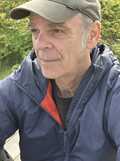 Werner Krauss, Anthropologue Social, Centre de Recherche en Durabilité, Université de Brême
Werner Krauss, Anthropologue Social, Centre de Recherche en Durabilité, Université de Brême

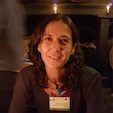
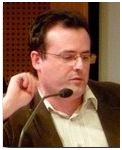
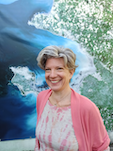
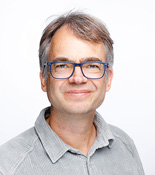
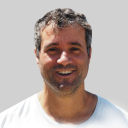

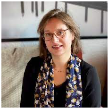
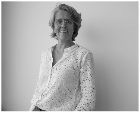
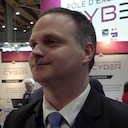


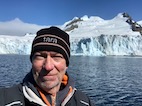
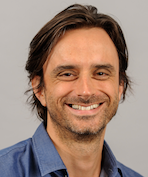

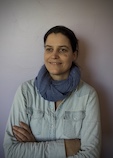
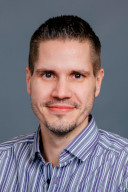 Christian Renner
Christian Renner
